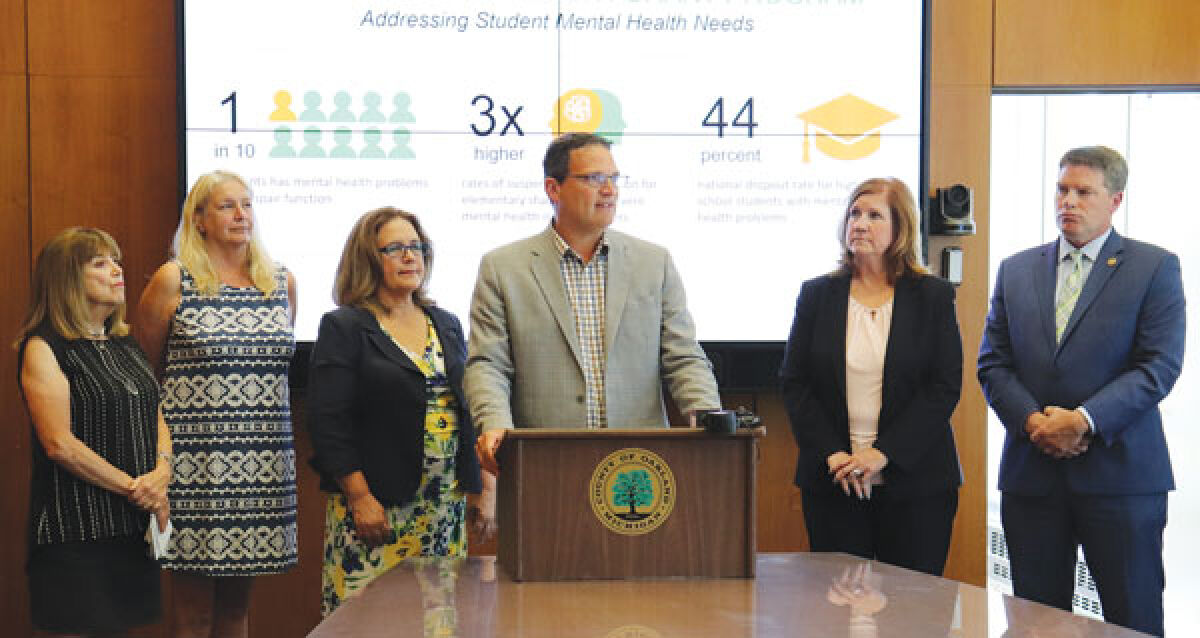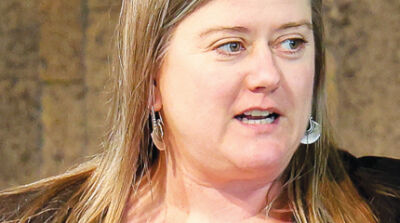OAKLAND COUNTY — On June 22, Oakland County and school officials announced the Oakland County Schools Mental Health Grant Program, which will automatically distribute $175,000 to each school district in the county to address students’ mental health needs.
The program, funded by up to $10,150,000 from the county’s American Rescue Plan Act allocation, will also include $5 million in matching grants funded by schools up to $175,000 per district. So districts can receive the $175,000 base grant and up to another $175,000 if the district matches that amount. Each district will have the flexibility to create social and emotional programs specific to its needs.
Oakland County Board of Commissioners Chair Dave Woodward, D-Royal Oak, said the program is the largest county-school partnership to date in the state aimed at improving the mental health of students, as pandemic-related learning loss, social isolation and anxiety relate to both public health and education.
“The mental health needs of kids are at an all-time high,” Woodward said. “We want to give young students who are struggling and their families the message that we hear you. We’re here for you and we’re prepared to spend whatever resources are necessary.”
Woodward said his hope is to have grant applications processed and funded in less than two months so schools have resources for students when they return to classrooms in the fall.
School districts can use the funds to hire additional mental health staff such as social workers and psychologists, train faculty to identify students in need of early mental health intervention services, create programs to address students’ mental and emotional needs, increase capacity for school-based mental health screenings and assessments of students, and more.
The student mental health grant initiative began in August of last year with bipartisan support and was spearheaded by Commissioner Penny Luebs, D-Clawson. Luebs is a social worker who works with children and families affected by trauma, and she chairs the board’s Public Health & Safety Committee.
She said students have a better chance to learn and handle life challenges when mental health issues are addressed, and that she feels “confident” the program will enable schools to help many children in the county.
In her work, she said, she has seen a trend of students acting out and not learning due to mental health, as well as teachers struggling to find ways to effectively do their jobs when faced with barriers such as uncertainty and virtual learning.
“(Students’) emotions and their behavior prevented them from learning, so we needed to put more help in the schools,” Luebs said.
Royal Oak Schools Superintendent Mary Beth Fitzpatrick said she values the program’s flexibility that will allow each district to meet its different needs.
“We are excited to expand the opportunities to help meet our students’ social and emotional needs by providing training and resources as part of a multi-year plan,” Fitzpatrick said in a prepared statement. “We appreciate that the County prioritizes this ongoing need to support our children in the schools and is committed to helping with the funding.”
Clawson School Board Trustee Cyndi Peltonen said one idea Clawson Public Schools is looking into is a therapy dog program to improve student and staff well-being.
“Our students and staff are survivors of an incredibly stressful two years,” Peltonen said in a prepared statement. “Research shows (therapy dog) programs can help reduce anxiety and depression, and even bolster academic achievement.”
According to Oakland Schools, one in 10 students has mental health problems severe enough to impair how they function at school, home or in the community, and the rates of suspension and expulsion for elementary students with severe mental health problems are three times higher than their peers, according to a county press release.
According to the release, social and emotional programs help students develop lifelong skills.
“In the short term, the positive impacts include the development of social and emotional skills gains in academic achievement; meaningful connections with educators and peers; improved attitudes toward self, school and others; positive social behavior; and fewer behavior incidents,” the release states.
For more information, visit oakgov.com/boc or call (248) 858-0100.
 Publication select ▼
Publication select ▼


























